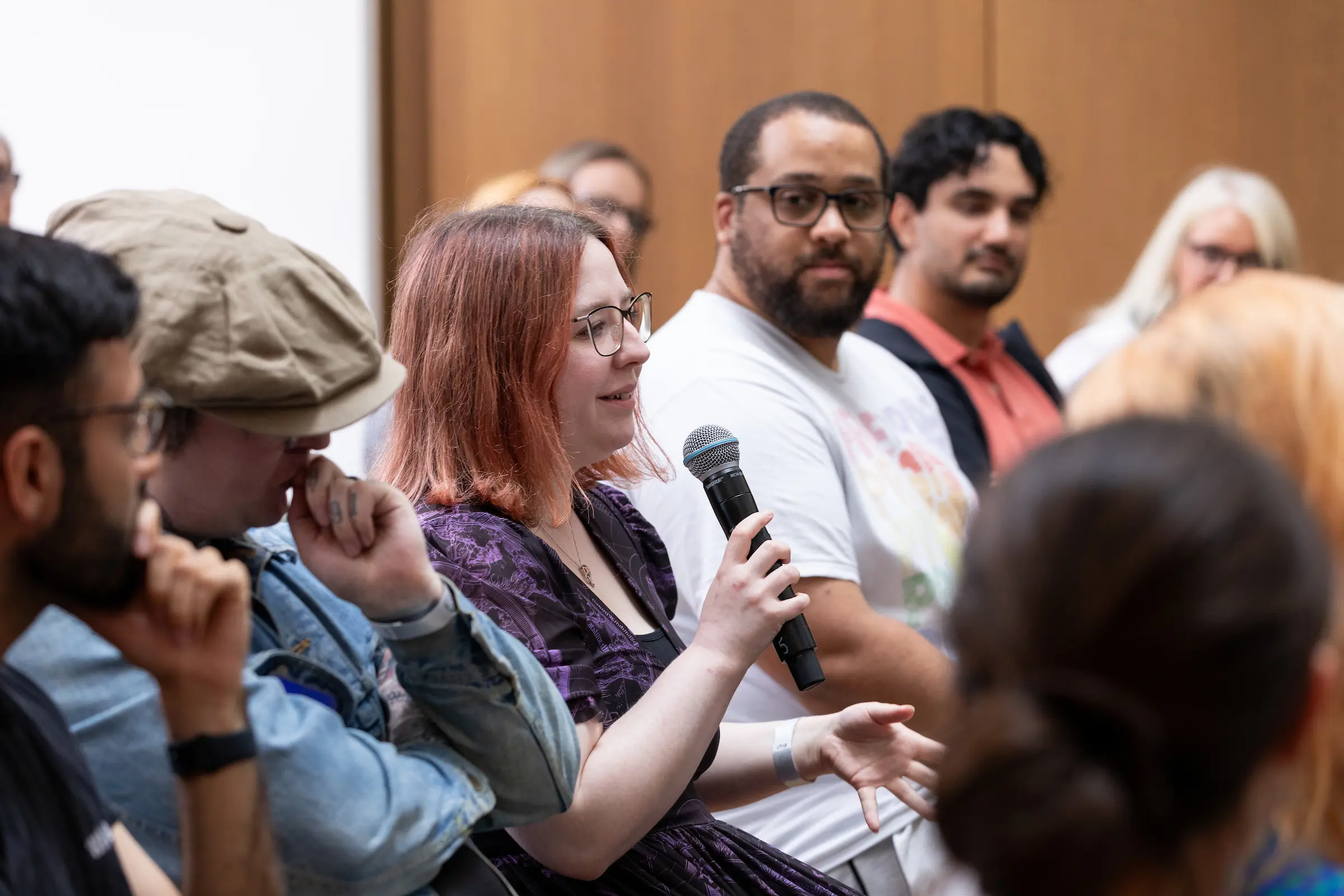BAFTA’s head of games Luke Hebblethwaite led sector professionals in an exploratory session about how to tackle social mobility and mental health in the games industry. This article looks at what suggestions resulted from this timely discussion.
Pursuing a career in the games industry, as with any other creative field, is not always easy. In particular, there is a growing awareness of not just the prevalence of mental health issues and pressures in the sector, but also how social mobility is a factor in these issues as well.
Industry data from games trade association Ukie shows that 38% of people in the UK industry report anxiety, depression or both. This is above the national average and when looked at across job roles was more prevalent in junior roles, which tend to offer lower income levels. It also showed that the games workforce features an over-representation of people from more affluent backgrounds or who attended fee-paying, independent or selective schools, while underrepresenting those from less affluent socio-economic circumstances.
At BAFTA’s 2024 Games Mental Health Summit in collaboration with Safe In Our World, mental health and game industry professionals took time to consider the issues people face and discussed ways in which we can take action.
Connections between social mobility and mental health
BAFTA’s head of games Luke Hebblethwaite started the discussion by explaining that in the games industry, social mobility and mental health intersects in a number of ways. These include:
- In the form of financial stress. Having to pay rent and bills can be more difficult for some than others, and jobs in the sector aren’t always as highly paid as in others.
- Individuals may lack a financial safety net, creating a sense of uncertainty or precarity. They may feel less able to take risks, such as leaving a more secure role outside of games for a short-term contract or internship within the industry in pursuit of a games career.
- Having to miss out on opportunities because of regional barriers. For example, some people may face additional travel costs that are related to where they are located/based due to a lack of local events or activities.
- A sense of impostor syndrome in environments made up of predominantly people from more affluent backgrounds, or experiencing either direct or inadvertent prejudice based on their different life experiences.
- Through tensions arising from people’s living environment and family life – current or past.
- The relationship between socio-economic status, mental health and many other areas of underrepresentation, such as ethnicity or gender identity.
Despite the complexity of these intersecting challenges, those working in the games industry are keen to find solutions. Below are some ideas that emerged through the discussion at the 2024 Games Mental Health Summit hosted by Safe In Our World and BAFTA.
Ideas for tackling the intersecting impacts of social mobility and mental health in games
Remove degree level qualifications from job requirements
Lowering this barrier and helping people understand what is necessary for each job in a way other than requiring a degree could have a big impact. Particularly for those people from marginalised communities. Including specific wording and plain language to explain what the job expectations are could help to reduce uncertainty, anxiety, or imposter syndrome that a prospective employee may have about applying.
Encourage educators to use games to support education
A career in games is not just about coding and technical knowledge. Producing games involves a wide range of creative arts, from art and animation to musical composition and acting. There are also numerous roles in games based around broader skillsets,. E.g. in more business-focused roles like finance or HR, or roles with more specific games knowledge and social skills such as community management, PR and marketing. This could be an opportunity to get educators to see games as a valid route for supporting education as lots of skills are really valuable but perhaps not as visible.
Tackle event location bias
There is still a skew to planned events being held in places that are expensive to get to for participants who don’t live there. This can potentially create financial stresses and make it difficult for those unable to attend to have their voice heard and connect with other people. Carefully considering where events are held and/or offering free or discounted tickets to those under financial hardship could go some way to help make them as inclusive as possible.
Acknowledge people’s backgrounds and individual circumstances
The way we all interpret issues like money and mental health can be impacted by our upbringings. One suggestion put forward as a way this may surface in relation to mental health was decision paralysis, framed with the example of someone who is faced with the dilemma of choosing between two activities if they can’t afford both. This creates a sense of thinking they ‘can’t really afford to go’ but ‘really need to go’, then ultimately deciding to do neither as the decision is too much. Acknowledging the tensions that may come into play for people when faced with potential opportunities is important.
Encourage games as a viable career option in diverse communities
While awareness of games careers is growing in certain environments, this is not universally true and especially in areas with lower income background where careers advice may tend towards more traditional careers. Local communities are often unaware of the wide geographic distribution of games companies and that viable local games careers may be available. Furthermore, those not working in or connected to games may not always understand the different roles that exist, or the cross-over they have with other disciplines. As a result, they may not talk about the industry as a career option as they lack clarity over roles, what they mean and what you need to do to get into them. This is an opportunity for those working in games to consider how best to communicate the career opportunities available, and how to access them, to encourage more voices and people into the industry.
- The ideas in this article were gathered from the BAFTA and Safe In our World Games Mental Health Summit. For practical advice on increasing socio-economic diversity on-and off screen take a look at BAFTA’s industry-wide resource Invisible Barriers.






